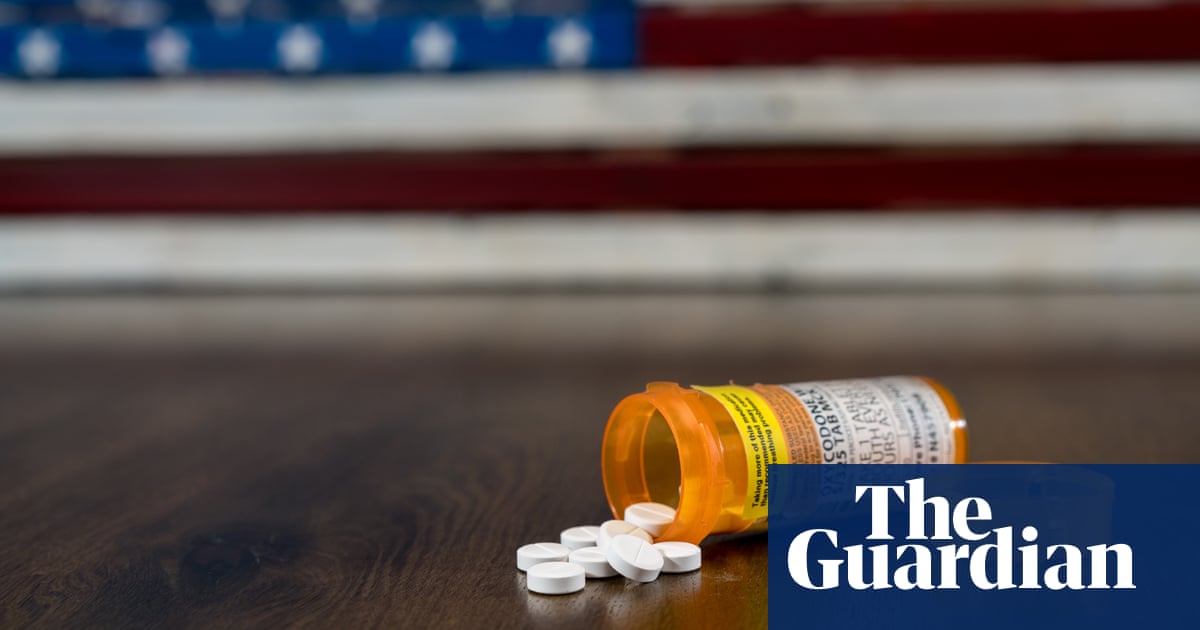Rightwing pressure group Alec seeks to limit public nuisance laws used to take on big business from tobacco to climate crisis
Opioid manufacturers and other major corporations are pushing legislation to strip away state laws that have been used to sue the pharmaceutical industry for hundreds of millions of dollars over the worst drug epidemic in US history.
The influential rightwing pressure group the American Legislative Exchange Council (Alec), which is funded by large US companies, is behind model legislation to greatly restrict lawsuits under state public nuisance laws which are increasingly widely used to hold big business to account.
Public nuisance legislation was central to state lawsuits against the tobacco industry over the damage caused to public health by smoking in the 1990s. The laws are also at the heart of some litigation against fossil fuel companies over the climate crisis and emerging lawsuits against companies that failed to adequately protect workers from Covid.
They have also resulted in drug manufacturers and distributors paying out hundreds of millions of dollars to cities and other authorities for their part in the opioid crisis that has claimed about 800,000 lives. On Friday, the advertising company Publicis Health agreed a $350m settlement with US states that sued the company under public nuisance laws for promoting the high-strength painkiller that kicked off the opioid epidemic, OxyContin, to doctors with false claims about its safety.
But in an attempt to limit public authorities and others harmed by the actions of big business from seeking redress, corporations are using groups such as Alec and the US chamber of commerce to push state legislatures to pass laws to curb similar legal actions in the future.



I hope they succeed in stripping these laws away. People who suffer from chronic pain conditions have been tortured needlessly by not having access to these medications. No other medication has been able to step in and fill the void. All because many people abused the drugs and didn’t follow the prescribed dosages. I don’t blame the manufacturers for that at all.
Blaming opioids for opioid addiction is like blaming social media for people being dumb enough to hurt themselves over other people’s opinions. It isn’t the product at fault, it’s the people who don’t use it right and abuse it. And I realize this point of view is extreme for some, but it’s true that the if you blame the product, you only solve a small part of the problem. And create other problems in the meantime.
As someone that was on oxycodone for years, I understand that things have flipped and a lot of people that they would help can no longer get them. Which sucks, but what you’re saying isn’t the issue. The issue was the pharmaceutical companies straight up lying to doctors about how addictive their drugs were. Not caring how many people they killed as long as the money flowed in.
But that shouldn’t really be a surprise to anyone - big companies are only about making money, they’d go belly up if they didn’t put profit over human lives. It may suck monkey runoff, but it’s the truth - and I don’t blame big pharma for wanting to rake in as much $$$ as possible.
Maybe they should have been more transparent about the possible addictive qualities of opioids, but in every case where the drugs were abused the doctors have proven that they did not tell the patient to “take as many you want.” They did warn the patients about the dangers and also gave them very EXACTING prescriptions to follow, which the patients ignored.
Anything and everything can be dangerous and addicting and harmful when misused. In Utah there’s a huge obesity epidemic because food is the one thing people can overindulge in here without condemnation from the mormon church. People can become addicted to potato chips, and pornography, and excessive Amazon usage and TV and podcasts and TikTok viewing and religion.
Should all manufacturers have to tell people, “Hey if you overuse this, it COULD be harmful.” You’d hope that some common sense would be called for on the part of the users.
https://www.thecentersquare.com/washington/article_fff7b864-2c3d-11ee-ae3c-4fa9fdf887ba.html
That’s just one case of many. And are you seriously trying to compare food or porn addiction to heroin in a bottle?
https://www.justice.gov/opa/pr/justice-department-announces-global-resolution-criminal-and-civil-investigations-opioid
Nope, you totally missed the point. End of discussion.
Your point was wrong and I refuted it with sources. But if you want to stick your fingers in your ears and yell la la la la go ahead. Doesn’t make you right though.